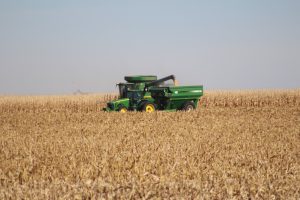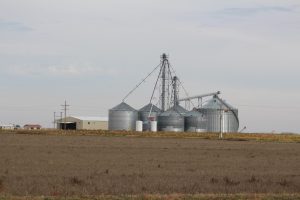House Agriculture Committee Passes Bipartisan “Farm, Food, and National Security Act of 2024”

The full House Agriculture Committee convened Thursday around 11 a.m. to mark up the Farm, Food and National Security Act (FFNSA) of 2024. About 13 hours later, the Committee passed the measure on a bipartisan vote of 33 to 21 with four Democratic Members – Rep. Don Davis (D-NC), Rep. Yadira Caraveo (D-CO), Rep. Eric Sorenson (D-IL), and Rep. Sanford Bishop (D-GA) – voting with all Republicans on the panel to approve the Farm Bill.
Lawmakers from both bodies will now depart Washington, D.C., for the Memorial Day recess. With regard to what’s next for the House Farm Bill, Chairman Thompson confirmed to reporters that the legislation would need to wait until at least September for full House floor consideration because there are just six weeks in session prior to the August recess and those will be consumed by FY2025 appropriations bills. Read more on the eventful markup and the Chairman’s successful, bipartisan Farm Bill here.
National Sorghum Producers Vice Chair Amy France, and staff members Tim Lust, Greg Ruehle and Sydney Lundberg spent the week on Capitol Hill advocating for sorghum policy priorities, including more farm in the farm bill, with Member offices in advance of the markup.
American Farm Bureau Federation President Zippy Duvall responded to markup and passage of the Farm Bill out of the House Agriculture Committee Thursday. Duvall says, “We applaud the bipartisan vote after 13 hours of rigorous debate, but know that tight margins in both chambers and a crowded congressional calendar will present challenges in the next legislative steps.” Duvall urged the Senate Agriculture Committee to schedule a farm bill markup.
National Farmers Union President Rob Larew added, “A successful farm bill needs broad bipartisan support. We applaud today’s progress, but we know that significant improvements will be needed to advance this bill.” At the NFU Convention held in March 2024, delegates approved a special order of business outlining the organization’s priorities for the 2024 Farm Bill, including advancing NFU’s Fairness for Farmers campaign, maintaining and improving the farm safety net, and strengthening conservation programs.
Livestock groups welcomed the House Agriculture Committee’s action to markup the Farm Bill. The National Pork Producers Council says the bill supports all pork producer’s farm bill requests, including a federal fix to the host of Prop. 12 issues plaguing producers and consumers. NPPC President Lori Stevermer says, “I’m pleased to see the U.S. House Agriculture Committee seize the opportunity to stop a potential 50-state patchwork of differing on-farm regulations.” A 2018 California ballot initiative, Proposition 12, prohibits the sale of uncooked whole pork meat not produced according to the state’s arbitrary housing dimensions. National Cattlemen’s Beef Association President Mark Eisele says, “This Farm Bill protects the cattle industry from foreign animal disease, supports producers’ voluntary conservation efforts, and safeguards our food supply.” And National Milk Producers Federation President and CEO Greg Doud adds, “We commend Chairman Thompson and committee members from both parties for approving a 2024 House Farm Bill that includes critical dairy priorities.” The legislation extends the Dairy Margin Coverage program though 2029, among other dairy priorities.
Sustainable Aviation Fuel Coalition’s Executive Director, Alison Graab welcomed Farm Bill markup and inclusion of sustainable aviation provisions in the bill. Graab says, “The provisions of the bill affirming sustainable aviation fuel as an advanced biofuel and providing for greater USDA collaboration regarding sustainable aviation fuel underscore the significant role of sustainable aviation fuel.” Sustainable aviation fuel made from renewable biomass and waste resources have the potential to deliver the performance of petroleum-based jet fuel but with a fraction of its carbon footprint, giving airlines solid footing for decoupling greenhouse gas emissions from flight, according to the U.S. Department of Energy. By growing biomass crops for sustainable aviation fuel production, American farmers can earn more money during off seasons by providing feedstocks to this new market, while also securing benefits for their farms like reducing nutrient losses and improving soil quality. The Sustainable Aviation Coalition represents the entirety of the sustainable aviation fuel value chain.









